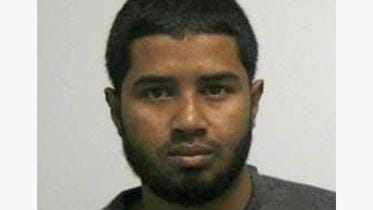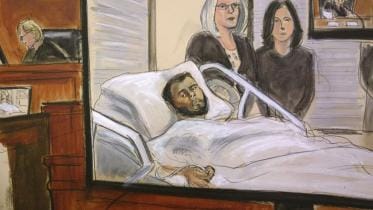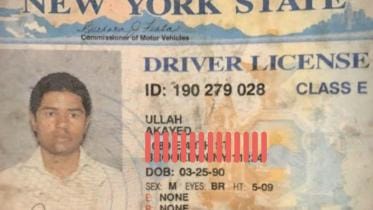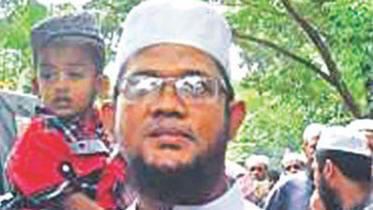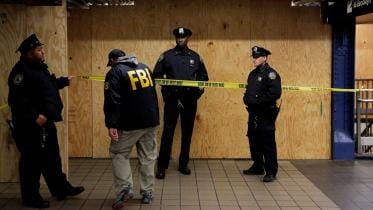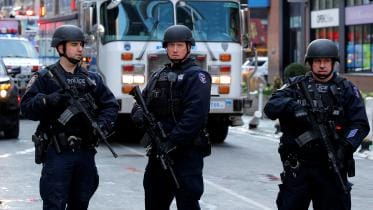New York blast
Akayed Ullah indicted for NY blast on US terrorism charges
The Bangladeshi man accused of attempting a suicide bombing in a busy New York City commuter hub in the name of Islamic State in December is indicted on US terrorism charges by a grand jury.
11 January 2018, 05:02 AM
Bombing underscores NY subway system’s vulnerability
The crude pipe bomb that exploded beneath the streets of New York serves as a chilling reminder of the vulnerability of the city’s subway system, a 24-hour-a-day operation with 472 stations and more than 5 million daily riders.
14 December 2017, 05:11 AM
Accused NY bomber's family says attack 'our worst nightmare'
Zulifikar Haider hopes his daughter would live the American dream when she married a fellow Bangladeshi living in the United States, but that dream turns into a nightmare when the family see pictures of her husband wounded after allegedly trying to set off a bomb in a crowded New York commuter hub.
14 December 2017, 05:04 AM
Akayed followed Jasim's writings
Akayed Ullah, accused of setting off a bomb in a crowded New York subway passage on Monday, was apparently influenced by sermons and write-ups of radical Muslim preacher Mufti Jasim Uddin Rahmani, police said.
13 December 2017, 18:00 PM
Akayed discusses militant’s leaflet with his wife: Monirul
Akayed Ullah, the Bangladeshi suspect in Monday's pipe bomb explosion beneath New York's Times Square, gave a leaflet of militant leader Jasim Uddin to his wife and asked her to read it in September last indicating that he was self-radicalized, says a top police official.
13 December 2017, 08:26 AM
He 'acted alone'
The suspect in Monday's New York subway blast looked at Islamic State propaganda online but is not known to have any direct contact with the militants and probably acted alone, law enforcers in the US found.
12 December 2017, 18:00 PM
New York subway blast in retaliation for United States airstrikes on Islamic State: Report
Akayed Ullah told investigators that he set off his bomb in retaliation for United States airstrike on Islamic State targets including in Syria, The New York Times reports quoting law enforcers.
12 December 2017, 07:10 AM
Akayed Ullah ‘born and raised in Dhaka’
Arrested Akayed Ullah, who went to the US from Bangladesh in 2011 on a visa available to certain relatives of US citizens, was born and raised in Dhaka, villagers say.
12 December 2017, 06:30 AM
Bangladesh strongly condemns New York blast
Condemning strongly the blast in a crowded subway corridor near Times Square in New York, Bangladesh government says that terrorists must be brought to justice.
11 December 2017, 18:12 PM



